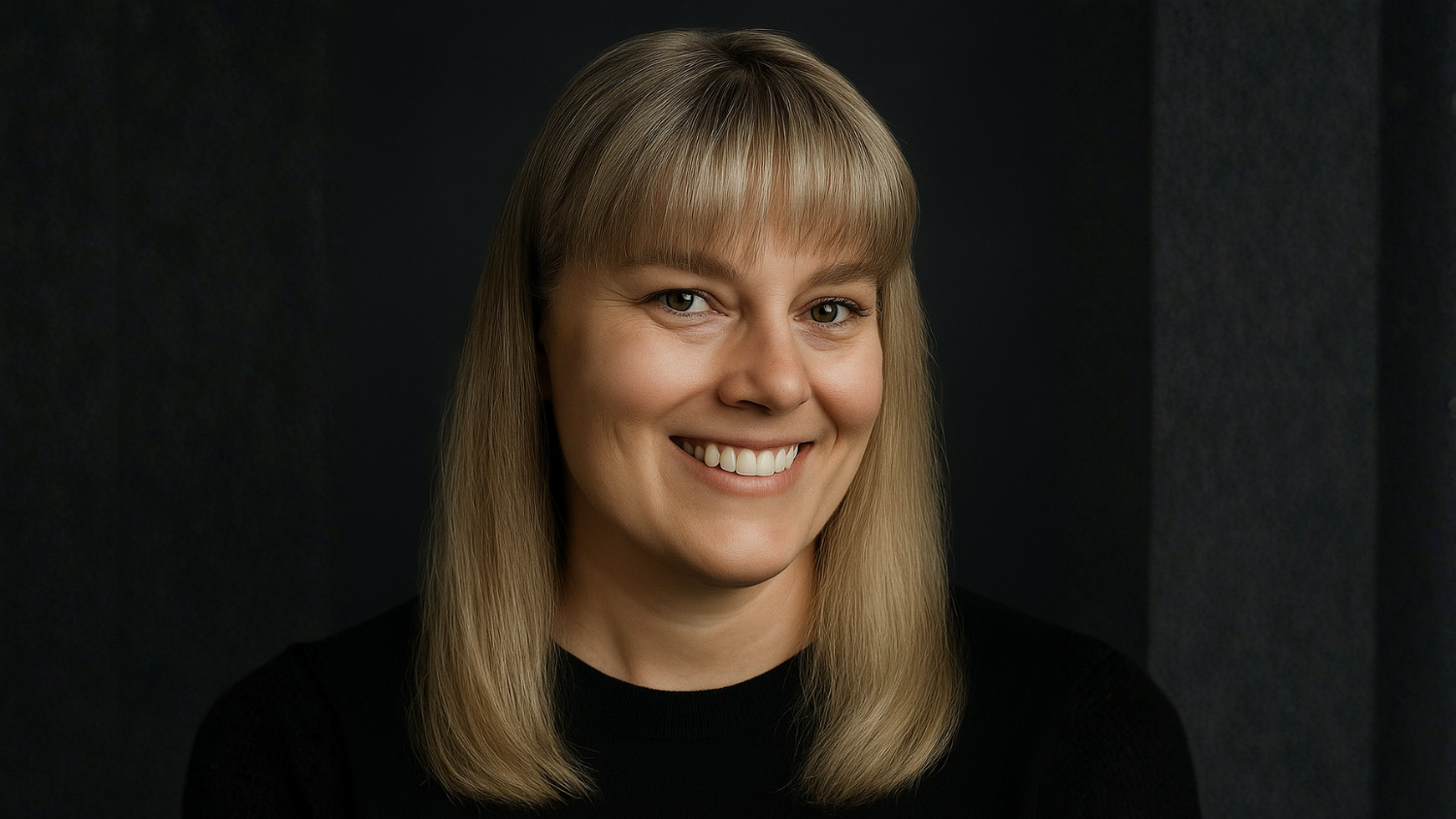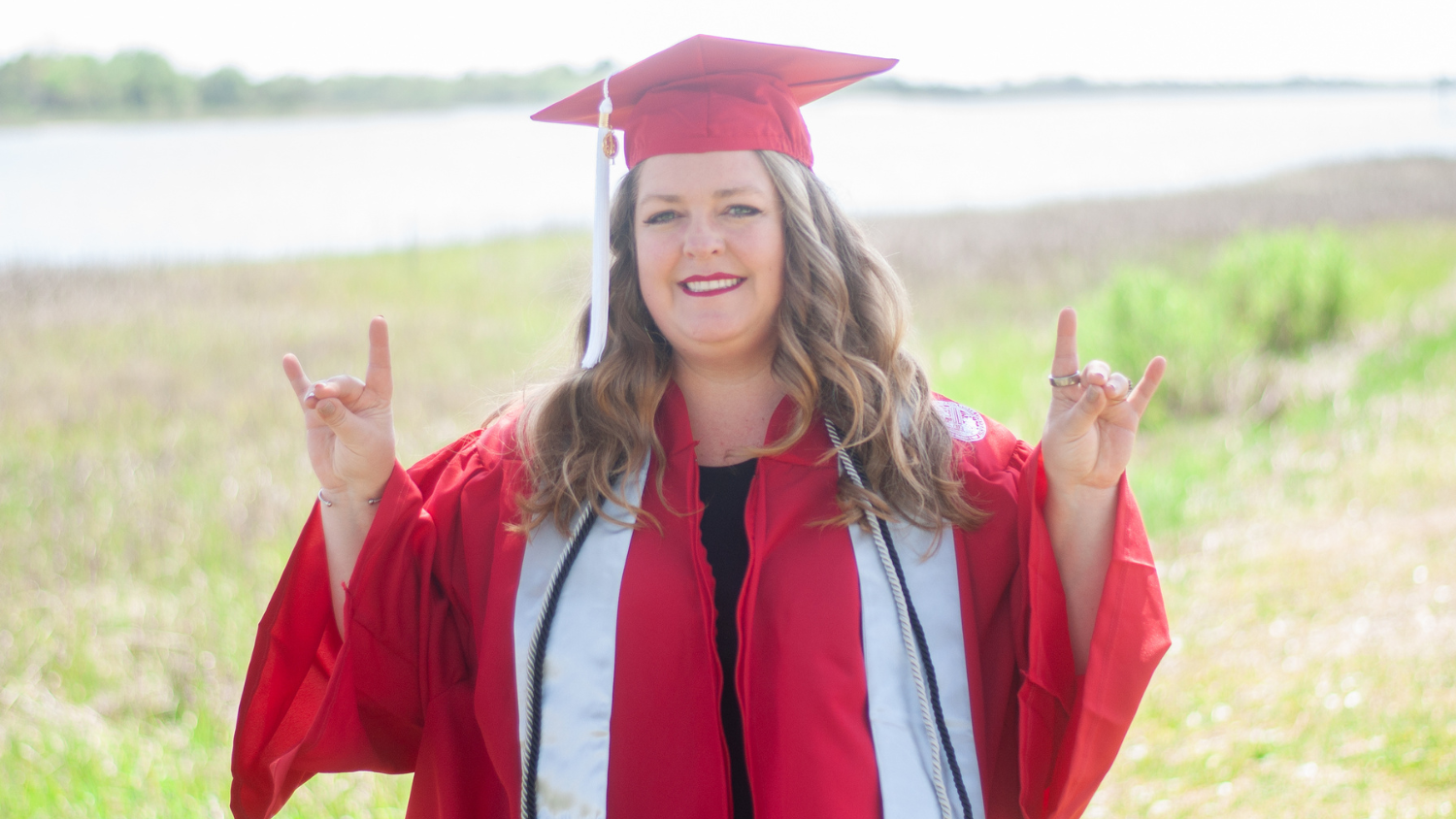When Gabrielle Buchanan transferred to North Carolina State University, she intended to become an agricultural sales representative.
However, she realized she’d rather directly interact with people while gaining hands-on experience and helping the local community.
Buchanan graduated in December 2022 with an agricultural science degree and three minors in horticulture science, business management and extension education — offered through the College of Agriculture and Life Sciences.
And she did it all online.
Distance education was great for me because I like to see and do things independently. I was able to manage my own schedule.
Students in the Bachelor of Science program in agricultural science study leadership, communication and the dynamic aspects of the food and fiber industry.
The college also offers distance graduate degrees and certificates and undergraduate certificates through 12 CALS departments.
Buchanan believes the agricultural science distance education program prepared her for her current role by helping her develop research skills she’s applied to her current job.
“Distance education was great for me because I like to see and do things independently. I was able to manage my own schedule,” she says. Buchanan now works at the Inter-Faith Food Shuttle in Raleigh, North Carolina, as a volunteer services coordinator for agriculture.



The Inter-Faith Food Shuttle is a nonprofit organization that supports food security for children, families and seniors. Inter-Faith directly distributes groceries and fresh produce to people via food trucks, partners with traditional food pantries and offers catering services. The organization also provides community health education and job training.
Working locally on an urban farm offers a diverse learning experience for Buchanan. “There are several opportunities here,” she says. “I’m not doing only one thing every day.”
She is the primary volunteer recruiter for Inter-Faith’s many locations. These volunteers can work in agriculture, community health education or hunger relief. She also promotes the organization’s Durham and Raleigh community gardens.
“I inform people that the Inter-Faith Food Shuttle is here to help the community,” she says. “I let people know they can volunteer and earn service hours. Several of our core farm volunteers regularly help out.”

The distance program at CALS enabled Buchanan to continue school during pandemic restrictions.
“I got used to being online and enjoyed it more,” she says, adding she could take more classes, carve out study time and “dig deep and learn.”
She managed her challenging schedule by planning her study time. And when she needed her professors, they were only an email or a Zoom call away.
“That’s why I love NC State. The professors were great with communication. They knew me before I came back to school my last semester. I’m super grateful for them.”


Buchanan wants to own an all-women’s gym beside a small farm of high-value fruit, vegetables and livestock. She envisions providing a safe, non-competitive space for women of all backgrounds to improve their health. To prepare, she’ll pursue additional education in nutrition to offer her patrons nutritional guidance.
“There are going to be times when you want to give up,” Buchanan reflects. “But as long as you remember why you’re doing what you’re doing, it helps you pursue your goal. Distance education can be difficult, but communicating with your professors and letting them know you’re willing to work makes it a little easier.”
All photos by Krystal Lynch.
This post was originally published in College of Agriculture and Life Sciences News.
- Categories:



